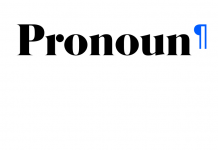 Here’s an epilogue to the SFWA kerfuffle I posted about a couple of days ago: the central figure in the article, Sean Fodera, has posted a public apology to Mary Robinette Kowal for his unprofessional remarks (which she has accepted), and also a clarification on his attitude about women in SF. (The apology was apparently so popular that it caused SFF.net to go down for a while. It seems to be back up now, but just in case, screencaps are available at Radish Reviews.)
Here’s an epilogue to the SFWA kerfuffle I posted about a couple of days ago: the central figure in the article, Sean Fodera, has posted a public apology to Mary Robinette Kowal for his unprofessional remarks (which she has accepted), and also a clarification on his attitude about women in SF. (The apology was apparently so popular that it caused SFF.net to go down for a while. It seems to be back up now, but just in case, screencaps are available at Radish Reviews.)
In the apology, Fodera explains that his antipathy toward Kowal was not because she was a woman, but rather concerning some disputes he had with her concerning SFWA internal politics at the time he left the organization. He contends that The Daily Dot blog took his quotes out of context and made it appear as though he was expressing sexist views when, in fact, he was actually only (and now, he admits, unjustly) grinding the axe he had against one particular person. Kowal had been part of the administration involved in making a number of changes to the nature of the SFWA (though not the sole architect of said changes):
In context, I had invested nine years working diligently and effectively for SFWA under six presidents (Spinrad, Lee, Asaro, Bailey, Capobianco, and Davis), serving on nine committees (chairing two of those), only to see most of those committees dissolved, or reduced in mission and impact in my final year of membership and since. SFWA used to do excellent work in educating writers (members and non-members alike) on the business of writing – contracts, copyrights, estate planning, etc. SFWA has continued to matter to me, as I think it can still be a very powerful organization in the genre. I’d simply like to see them doing more outreach and making resources available to writers who haven’t yet reached SFWA eligibility.
(Though this does not so easily rationalize away this comment of his. But if Kowal is willing to accept his apology, so be it. She’s the one it’s meant for.)
Fodera further adds that he feels he has just cause for legal action against the Daily Dot post’s author, but it is not worth the time, effort, and money such action would involve. His lawyer informed him he wouldn’t have a case against anyone who shared it.
On a related note, for those who didn’t see the update I made to my earlier SFWA article the day after posting it, SFWA member M.C.A. Hogarth (who self-publishes, herself) pointed out in a discussion on The Passive Voice (as did Cat Rambo in the article’s comments on TeleRead) that the SFWA is currently considering membership qualifications for self-publishing writers and hopes to have them in place by the end of the year. The proposed qualifications are roughly equivalent to the terms for professional publications and on the whole sound fairly reasonable.
It seems as if the only times we’ve really heard about the SFWA over the last few years have been when it did something spectacularly dumb. If it’s not the sexism scandal, how about the time back in 2007 when SFWA copyright czar Andrew Burt issued a mistakenly broad DMCA takedown notice? This notice resulted in the removal of works by Cory Doctorow (who had granted permission for his works to be posted), and bibliographies and critical works that only mentioned SF stories. SFWA President at the time Michael Capobianco apologized and issued a statement explaining that SFWA stood for “author’s rights”…and then reinstated Burt as the head of the SFWA’s copyright committee.
But it should be noted that the SFWA does provide a number of services that could be useful to all writers, whether they’re exclusively self-published or publish professionally as well—emergency medical funds, a legal fund, and various resources aimed at helping writers get better at writing and selling their work. It’s just that we don’t hear about those things most of the time, because it’s only the squeaky wheel that gets the grease. As a result, the SFWA ends up with a perhaps-undeserved reputation for idiocy as the result of the actions of a small portion of its members.
If the SFWA does get around to allowing exclusively self-published writers in, I would strongly suggest those writers disregard the idiocy and take a look at the services the SFWA offers. If they could be useful to you, then join John Scalzi’s “insect army” and sign up. The more new members the organization has, the more it will come to reflect the views of those new members—and the more it might be useful to the people who come from the new world where traditional publishers are strictly optional.

































There were discussions at one of the panels at the SFWA’s Nebula Awards weekend 2012 about the possibility of opening the organization’s membership to indie authors. Given that some SFWA members have been self-publishing for quite a few years now, and given that I can recall indie authors urging the SFWA to address this issue back in 2007 (in discussions at the SFWA’s then-unofficial LiveJournal blog), it seems to me that the SFWA is being rather slow in dealing with this matter. But perhaps they’ve simply been pressed for time during the last few years, handling so many important issues.